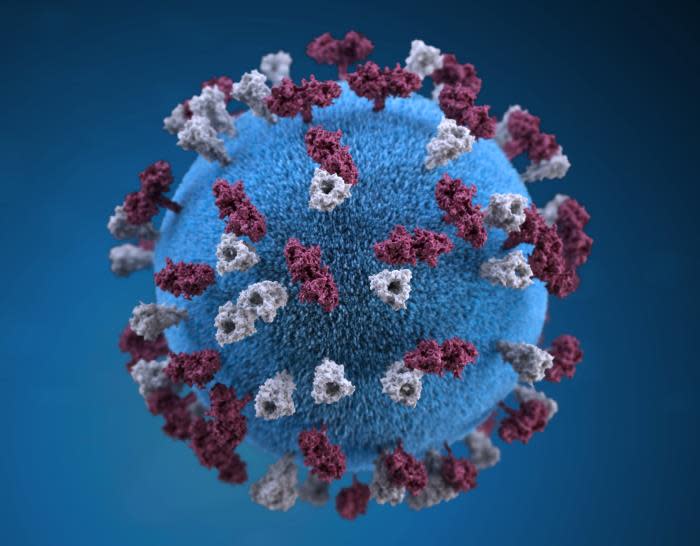Public health reports cases of measles in Laval and Montreal, urges people to get vaccinated

Measles might be spreading through community transmission in Quebec, the province's public health director, Dr. Luc Boileau, is warning.
There are currently four confirmed cases in Quebec. Dr. Boileau says four more cases might be confirmed in the next few hours.
The most recent confirmed case was reported by Laval Public Health.
The infected person was unvaccinated, did not travel and was not in contact with a known case of measles, the health agency said in a Thursday news release, adding that community transmission is therefore possible.
"That worries us," said Dr. Boileau.
While the person was highly contagious, they visited a school in Laval, a corner store, a medical clinic and hospital. The infected person has been isolated at home since Feb. 26.
Laval public health officials say they're doing contact tracing at the locations frequented by the infected person. They're also asking medical professionals to flag likely cases of measles immediately without waiting for positive lab results.
Two other cases were recently reported in Montreal by the city's public health department. They were in the same family.
There have also been cases of measles reported in other parts of Canada, notably in York Region, Ont., where the person affected hadn't travelled recently or been in contact with another case of measles.
The specific locations frequented by the infected person in Laval are:
École internationale des Aventuriers in Laval from Feb. 19 to Feb. 20.
The Couche-Tard at 800 Chomeday Blvd., in Laval from Feb. 19 to Feb. 20. The person was there for 10 minutes sometime between 4:30 p.m. and 5:30 p.m.
The waiting room at the Centre Médical Mieux-Être on Henri Bourassa Boulevard on Feb. 25. The person was there between 2:30 p.m. and 5:30 p.m.
The second floor of the CHU Sainte-Justine Hospital on Feb. 21 between 6 p.m. and 7:30 p.m.
The emergency room of that same hospital on Feb. 26 between 3 p.m. and 10 p.m.
Vaccines key part of the solution
With March break around the corner, Quebec's Ministry of Health and Social Services is urging people to get vaccinated to limit the spread of the virus.
"We have information that leads us to believe that there's a resistance to vaccines that has slowly established itself in the population," says Dr. Boileau.
There are certain communities that have lower vaccination rates than others which puts several people at risk, he adds — Montreal being one of them.
The measles vaccine is covered by Quebec's immunization program. The Ministry of Health and Social Services' goal is to see every region reach a 95 per cent vaccination rate.
"We're worried by Montreal but it's not the only region that falls short of the 95 per cent," says Dr. Boileau.
He said that because vaccination rates of children at schools in some parts of Montreal are very low — he told Radio-Canada below 80 per cent — it's important to keep an eye on the city as the situation evolves.
Measles is highly contagious, the virus can remain active and contagious for up to two hours in a room even after an infected person has left, and it has a long incubation period — usually between 10 and 14 days. Its symptoms include fever, cough and a bumpy, red rash.
Common complications are ear infections and diarrhea. In rare cases, measles can be fatal.
The two-dose vaccine against measles is more than 95 per cent effective at preventing infection, according to Montreal Public Health.


